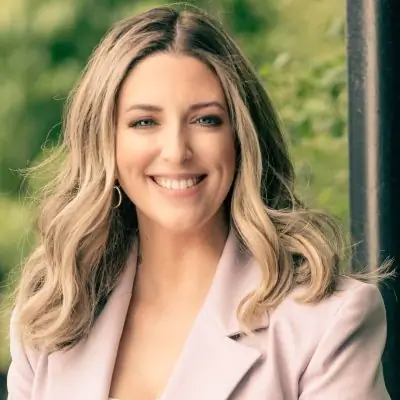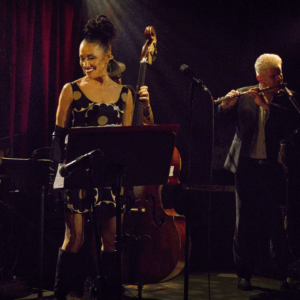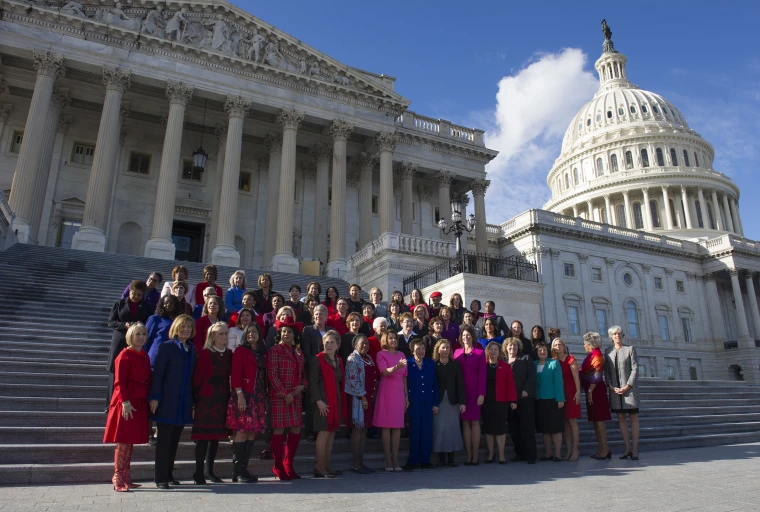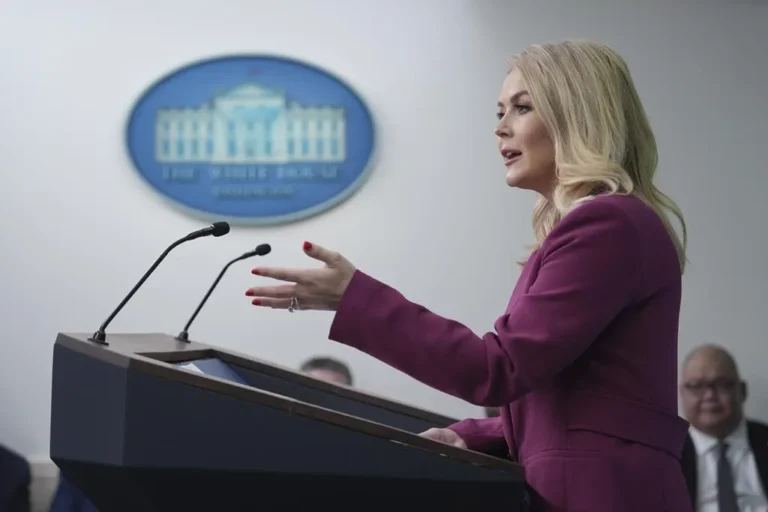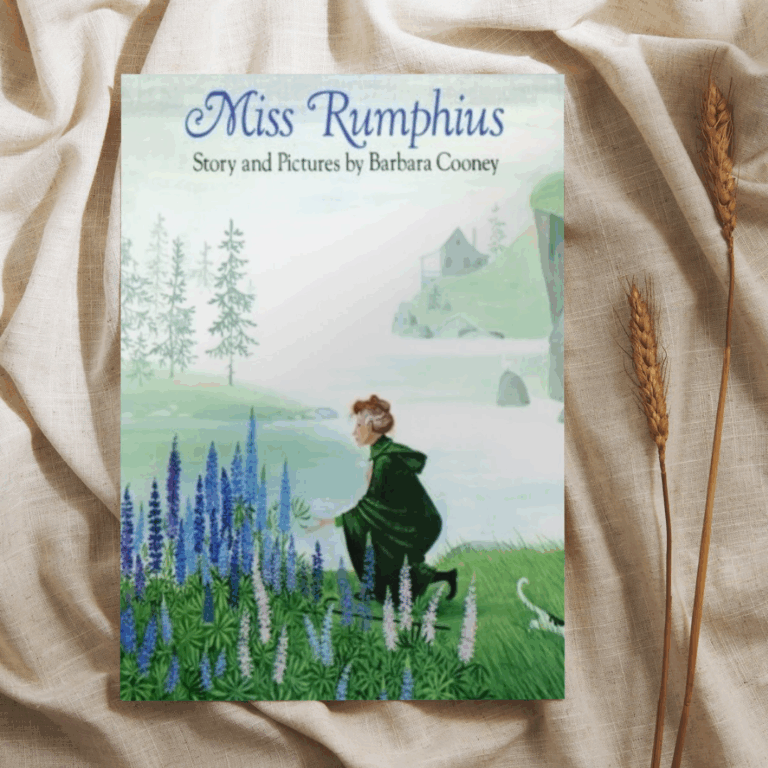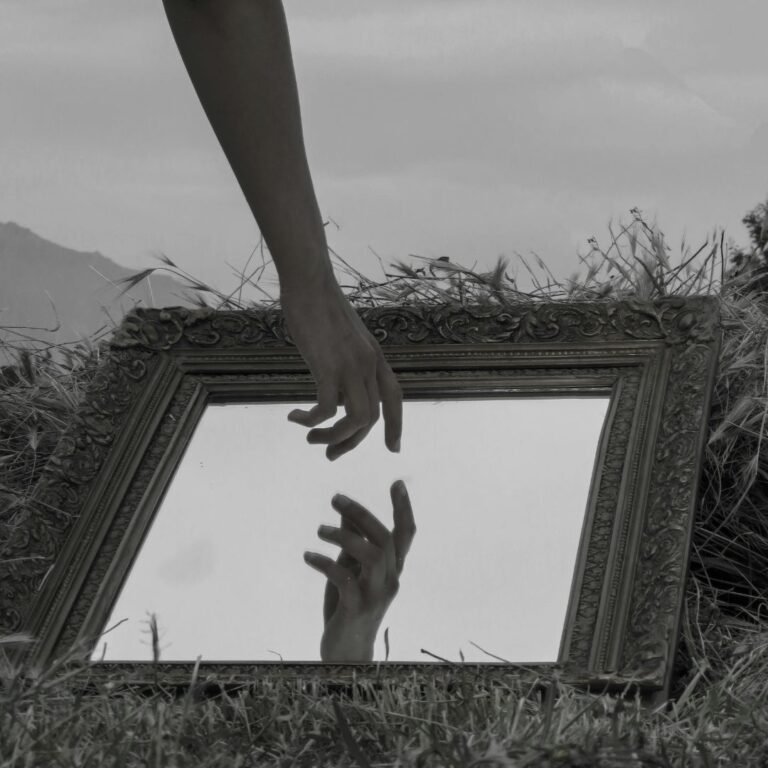Anna Maria Tremonti — one of Canada’s most known journalists
Anna Maria Tremonti is one of Canada’s most respected journalists. She has covered major news stories for CBC’s The National, co-hosted The Fifth Estate, and worked as a foreign correspondent in global capitals and significant conflict zones. She also served 17 years as host of CBC radio’s famous current affairs show The Current, drawing in more than one million listeners daily. Anna Maria has now embarked on a new journalistic odyssey with the launch of a podcast called More With Anna Maria Tremonti, and she joins Jen and Catherine for a thoughtful, funny, and deeply personal conversation which reveals the human side of life in the news.
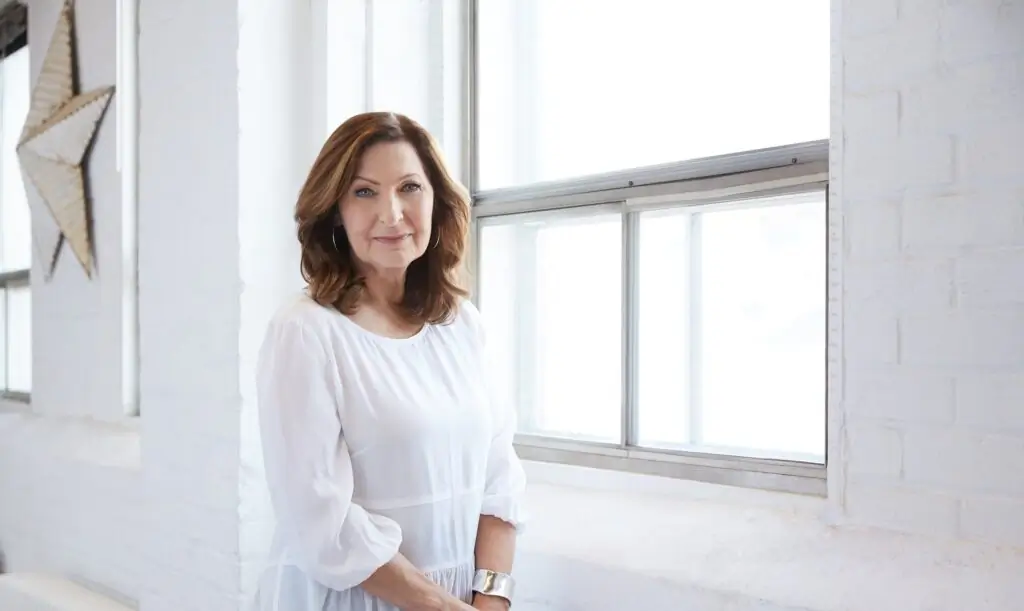
Moving on to new opportunities
Jennifer Stewart: Anna Maria, why did you step away from The Current?
Anna Maria Tremonti: Several reasons. The one really was that there were other stories and things I wanted to do. Seventeen years is a long time. Podcasting was really starting to take off and I realized you could tell stories in different ways with podcasting, and I wanted to play in that space. I could have stayed and done it on the side, but I wanted to give it my full attention and try it out.
But I also believe in renewal. A show like that takes a lot of energy and brings a lot of energy, and you want to leave when it’s still at a nice place. I came up through the CBC and I think it’s important that at some point in your career you make space for other people to do things.
Catherine Clark: What was the most challenging part about leaving, but what was also a revelation to you after you’ve made the change?
Anna Maria Tremonti: I thought about it for three years because I knew it would be a big deal to leave, and what if I regretted it? There are so many things I loved about being at The Current, the most important being that we could take stories that were out in the world and maybe take a look at them differently and spend a lot of time on them that most broadcasters don’t have that kind of time to do and really discuss issues. The hours were becoming harder. And we had covered so much territory and I felt it was time to try something new.
Jennifer Stewart: Were you scared of shaking up the status quo? Where do you get that drive and that courage to make those shifts in your career and your life?
Anna Maria Tremonti: I am less afraid of change than I am afraid of never changing. I’m less afraid of trying and more afraid of not trying. So, right away, I see things through that prism, and that makes me want to try something else. If you follow through with the what-if, maybe it’s not as bad as you think it might be.
Now, of course, we have obligations and responsibilities and mortgage payments. And so not everything is easy to leap from, but sometimes we can become afraid of change. I’ve always been afraid of calcifying, of being too rigid and not trying to change.
Catherine Clark: You’re hosting your podcast More now, and that really is conversational. Now you’re having these long-format conversations with people, which is exposing their humanity in a very different way. What are you getting out of that?
Anna Maria Tremonti: It’s another way of interviewing; it’s another way of talking. I wanted to explore the idea of an even longer-form conversation. I really believe that conversation can cure many things if we would just talk things through, or we could hear other people having conversations, it would be easier for us to do the same.
It’s about letting go and trying to learn more and learn a little differently. But it’s all with the idea that if you have a longer conversation, you learn things about someone and maybe go down a little rabbit hole that you’re not expecting and you get to follow that.
The value of listening in conversations
Jennifer Stewart: You talk about the value of listening, and you just spoke about the ability to keep learning about people. As a society we don’t listen enough. What’s been your biggest lesson learned since starting More?
Anna Maria Tremonti: Listening differently. Understanding that I don’t have to know everything about where someone is going to feel that it’s a worthy conversation. Just listening and seeing where they wanted to go and then trying to pick up on that has been valuable for me.
Catherine Clark: You talk about long-format conversations and we are such an instant world now. Is there genuinely still a market for those kinds of conversations?
Anna Maria Tremonti: There is a huge appetite for this. It doesn’t mean we don’t want other things in quick bursts like news; you want to know what’s going on and be updated. But we live in exactly the world you’re talking about, and even in social media, these short bursts of things on Twitter or something on Instagram. Sometimes, we just need to be able to listen to something.
The beauty of a podcast is almost everybody listens with earbuds in, so it’s in your head and as you listen, you feel like you’re part of the conversation. That’s important too — in a world where everything is in bursts, you need to have that time to think and not everybody gets to have a long conversation with someone and so you can have one as if you’re the next person in the room.
Jennifer Stewart: Did you know early on that you wanted to be the purveyor of these conversations? When did you realize the power of being a journalist and communicating to others and what that could mean to our world?
Anna Maria Tremonti: I knew very little early on. My life is a learning process. I wanted to stay out of the studio for most of my career and I made a real point of doing that. I went into the studio for The Current because we had talked about a new way of doing conversations, and it would be like still bringing that reporting world in a different way.
The more I learned about journalism, the more I wanted to learn; I came out of university and I thought journalists were writers who couldn’t get work. But, I joined my student newspaper and fell in love with chasing stories.
Dealing with difficult situations
Catherine Clark: You loved being a foreign correspondent because you were in remarkable places, but the flip side is not all of it was pretty — you saw a lot of destruction and violence and death. The worst side of humanity. How do you handle those tough memories?
Anna Marie Tremonti: I would write about it in my stories, even if they were short stories. Life has been cruel to a lot of people. It’s important that we understand what people are going through in times of war, in times of political upheaval, and what political decisions mean. I wanted to be part of trying to find a way to put those stories forward.
The war in Bosnia was a pivotal moment in my career. It was working around and meeting people in terrible trauma, and seeing how they reacted with grace and their ability to survive. I think I’ve been more affected by the people who were able to walk away than the people who I never knew because they were killed. What I’ve tried to do in my reporting is be true to what I am seeing and what I am hearing from the people going through something.
Jennifer Stewart: What kind of tips or techniques have you adopted over your lifetime to process those moments, because normal Canadians aren’t on the frontlines of war?
Anna Maria Tremonti: I was fortunate enough to work with good people so I could talk about it. When you’re based in some of these cities where you’re doing a lot of this work, like Jerusalem, I was in Berlin when I was covering the war in Bosnia, there is a community of foreign correspondents and you can learn a lot from fellow journalists. You can talk and put things in perspective. In Jerusalem, I had Palestinian and Israeli Jewish friends, and we would talk about these things all the time, so I would get a perspective on this through them because, again, they’re living there, they’re not posted there, they’re not going to move. It’s the same in a war zone — I had a ticket out; other people don’t.
Learning to let go of judgment
Catherine Clark: If you could tell us one lesson you’ve learned over the course of your career, something that may have changed how you approached your job, is there something?
Anna Maria Tremonti: I’ve learned to sometimes take a step back, not to make assumptions, not to make judgments. I have learned to tell myself you don’t know who you’re passing on the street, so don’t judge them too harshly.
Jennifer Stewart: Because of your public profile, people feel like they know you. What would you like people to know about you as a person that they don’t know?
Anna Maria Tremonti: I’m so private that I’ve tried to keep it that way. I’m not as serious as you might think I am. I’m a goofy person. Many people believe that because of what they have heard on the radio, I’m that I have it together. I can fester about the smallest thing. I really do care about what other people think. I don’t want to hurt someone’s feelings, and I don’t want people to hate me. I have my own insecurities.
So many of us try to juggle so many things, and we wonder if we’re doing things right as women. I like to tell people it’s okay to take time for yourself and it’s okay to take time for your life. Your career is a marathon, it’s not a sprint. I would tell my younger colleagues, “It’s okay, you’ll second guess yourself later, so go ahead and do what you think you need to do now. And understand that you don’t have to be the first and the youngest and the best. Just do what works for you and you’ll be okay.”
(Note: This transcript has been edited for length and clarity.)

